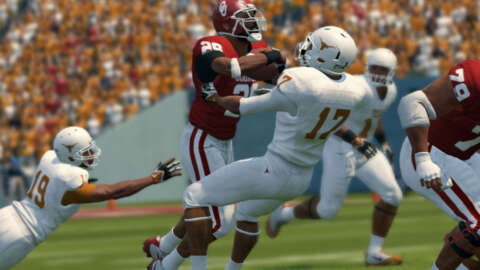Electronic Arts Facing Legal Action Over College Football Video Game
In recent news, Electronic Arts (EA) is facing legal action over its college football video game. The lawsuit, brought by former college football players, claims that EA has used their likenesses without permission and without providing compensation. This case is significant because it could set a precedent for how video game companies use the likeness of athletes in their games.
The lawsuit was filed in California by former college football players Sam Keller and Ryan Hart. They allege that EA used their likenesses in its NCAA Football and NCAA Basketball video games without their permission or providing any compensation. The lawsuit also claims that EA has profited from the use of the players’ likenesses without giving them any of the profits.
This lawsuit is significant because it could set a precedent for how video game companies use the likeness of athletes in their games. Currently, video game companies are not required to seek permission or pay athletes for the use of their likenesses. If the lawsuit is successful, it could change the way video game companies use athletes’ likenesses in their games.
EA has responded to the lawsuit by denying any wrongdoing and claiming that the use of players’ likenesses is protected by the First Amendment. EA also claims that the players have no right to compensation because they are not employees of EA.
The outcome of this case could have a major impact on the video game industry. If the players are successful in their lawsuit, it could mean that video game companies would have to seek permission from athletes before using their likenesses and provide compensation for the use of those likenesses. This could significantly change the way video game companies operate and could lead to more athletes receiving compensation for their likenesses being used in video games.
Overall, this lawsuit is significant because it could set a precedent for how video game companies use the likeness of athletes in their games. The outcome of this case could have a major impact on the video game industry and could lead to more athletes receiving compensation for their likenesses being used in video games. It remains to be seen how this case will play out, but it is sure to be closely watched by both the gaming industry and athletes alike.
